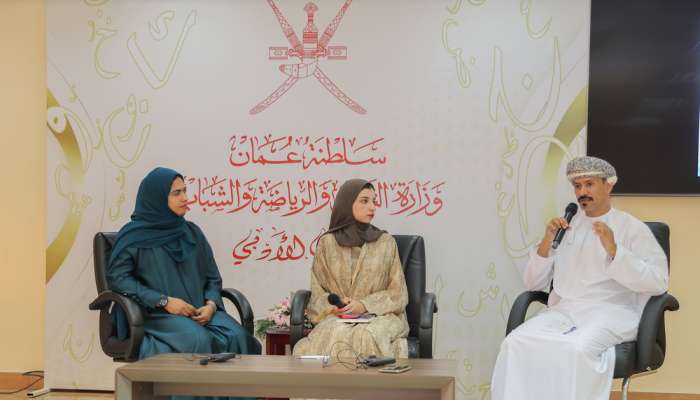
Muscat: A symposium titled "Translation in the Age of Artificial Intelligence," organised by the Ministry of Culture, Sports, and Youth on Monday in Muscat, addressed the growing prevalence of machine translation tools and AI applications, exploring their integration and intersection with the role of human translators in ways that enhance translation quality and preserve its cultural dimensions.
The three-day event, held at the Literary Forum, covers several key themes, including an introduction to smart translation technologies, the fundamental differences between human translators and digital tools, mechanisms for evaluating translation quality, as well as the ethical and professional challenges these technologies pose to the translation as a profession.
The symposium targets translators, individuals interested in translation and artificial intelligence, researchers, and intellectuals from various backgrounds. It also aims to enrich professional and academic discourse in an interactive environment that brings together specialists and those concerned with linguistic and technological matters, opening new avenues for dialogue on the future of translation in the context of AI and its accompanying linguistic, cultural, ethical, and professional transformations.
Over the next two days, the symposium will be followed by practical training sessions led by Dr. Alaa Al Zahran, a specialist in interpreting studies. Participants will gain insight into the latest AI technologies used in translation, enhance their proficiency in computer-assisted translation (CAT) tools, and develop their skills in machine translation post-editing, in line with the evolving demands of the translation market. The symposium also offers attendees opportunities for hands-on application, open discussion, and critical reflection on the limits of AI, particularly in creative or advertising-oriented texts.
It is worth noting that this symposium builds on the success of its first edition, held in May 2024 under the title "Practical Practices in Translation" and presented by Dr. Mohamed El Sharawy, which received significant engagement from participants. This year’s second edition is being held in response to the broad interest and positive interaction generated by the first, and in pursuit of strengthening knowledge bridges between culture and technology while preparing national competencies to meet future challenges in the field of translation.